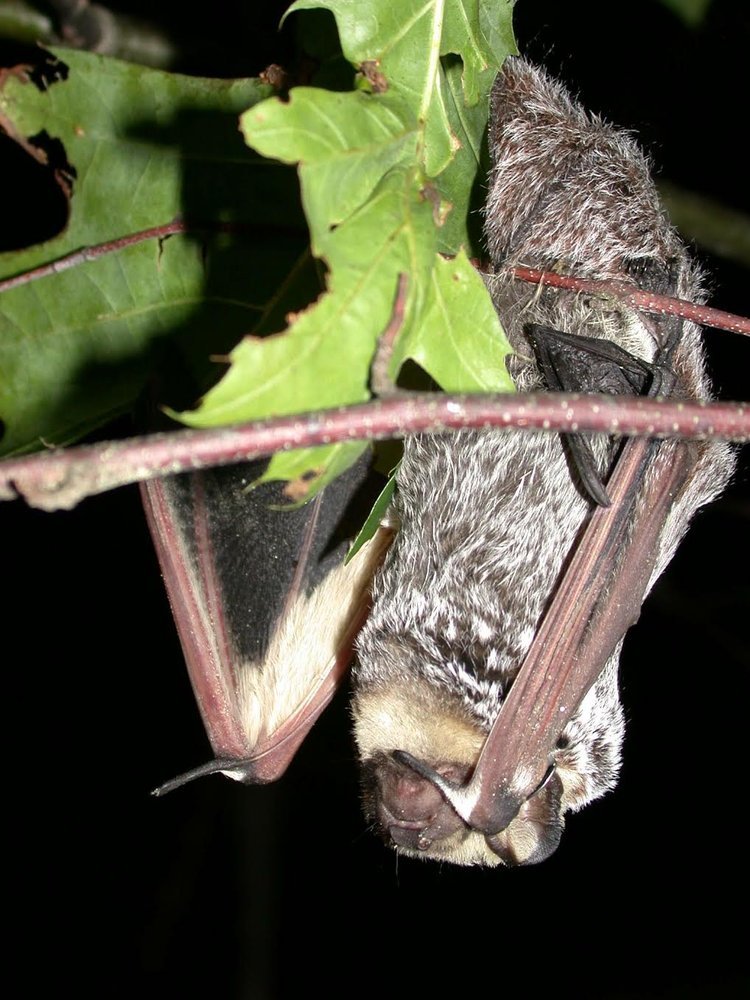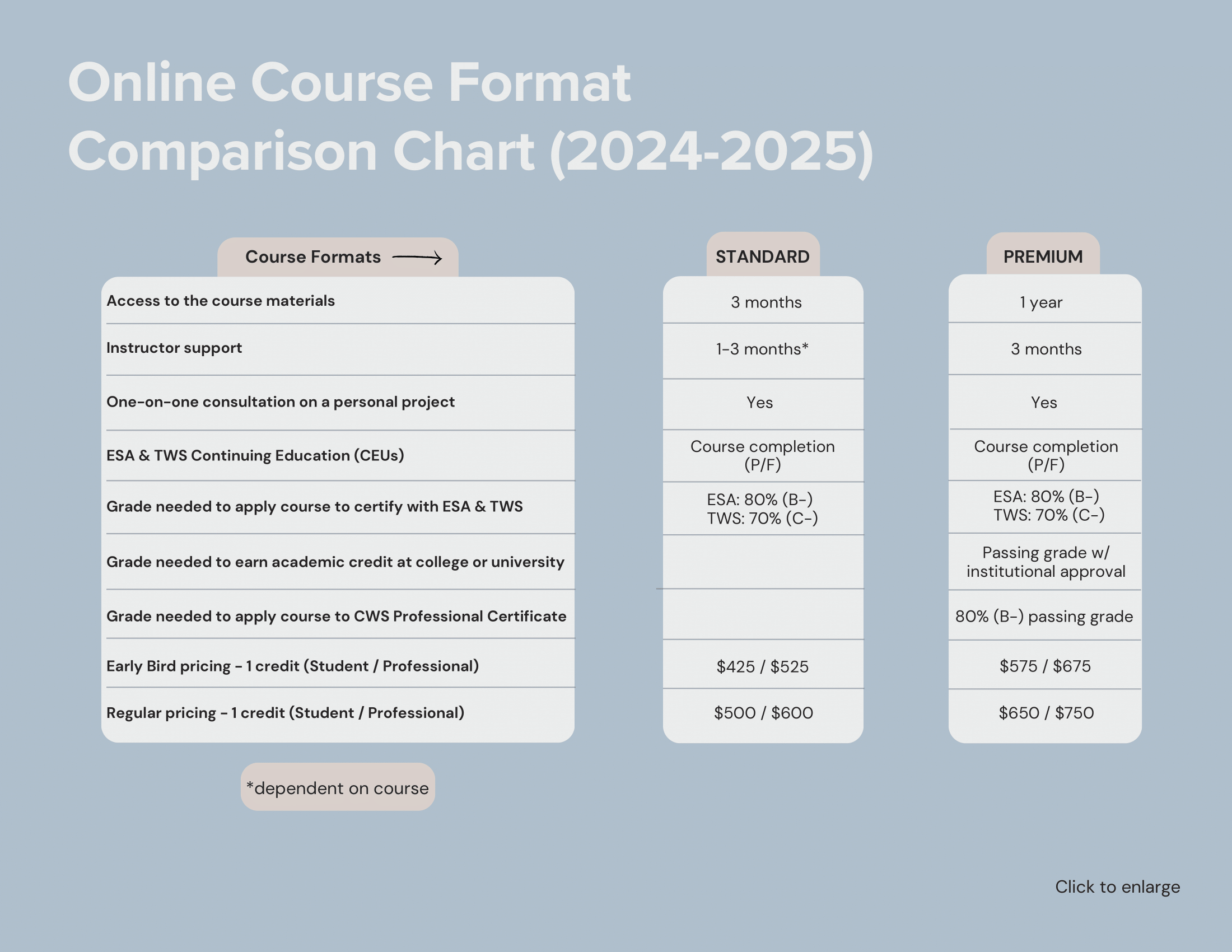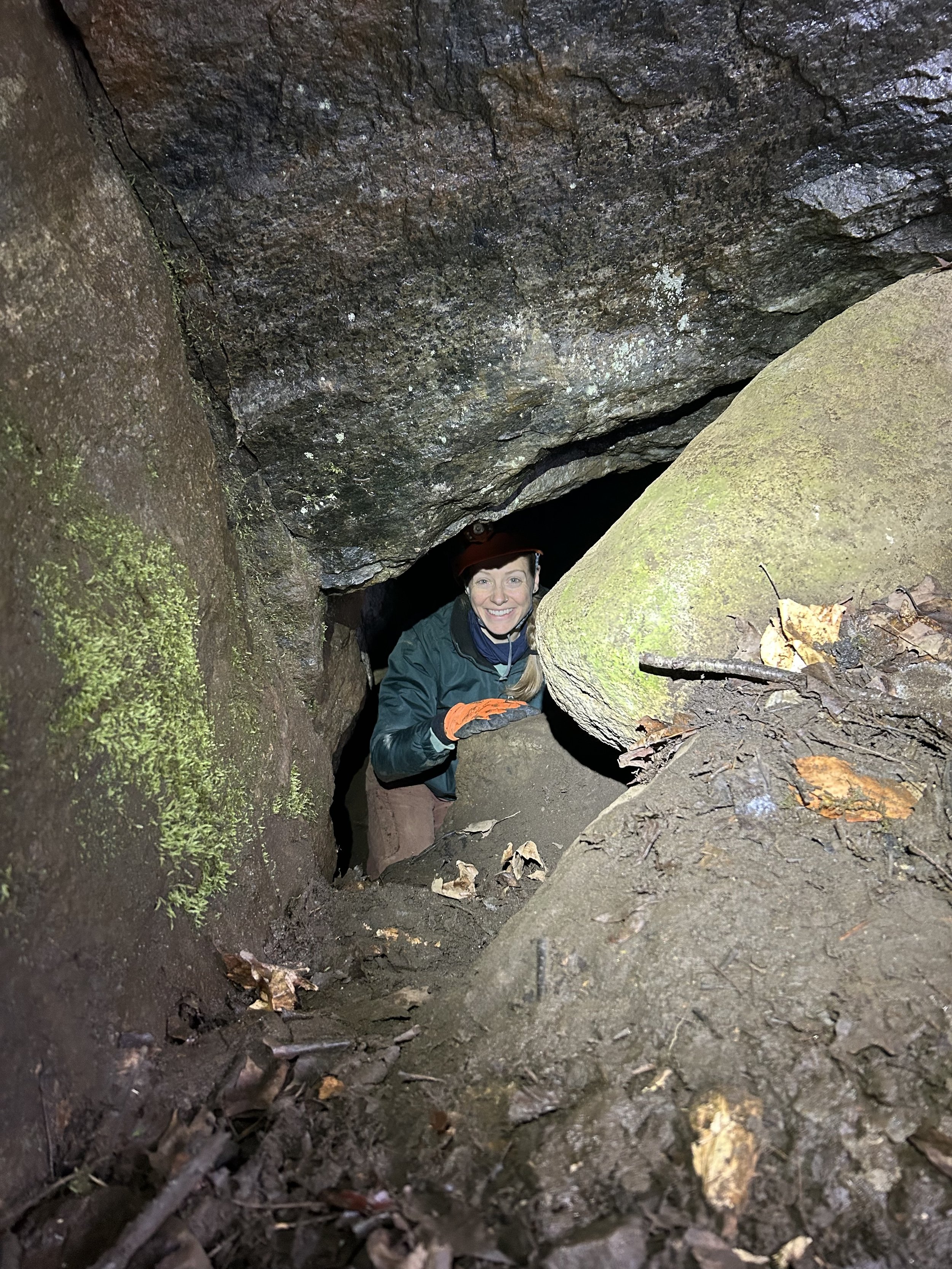 Image 1 of
Image 1 of


Bat Ecology, Conservation, & Research Methods
-
The conservation of endangered bat species requires an understanding of their unique physiological ecology. Understanding the suite of adaptations that enable bats to occupy their niche provides valuable insight into their demographics, which is a central component of any effective management strategy. This course introduces students to these fascinating and complex mammals. In addition to learning about bat phylogenetics, anatomy, and physiology, which in turn informs their life history and the ecological roles they perform within ecosystems, the course also covers the major threats to bats, basic concepts and protocols for monitoring bat populations in temperate regions, and current strategies for population stabilization and recovery.
-
Summer: Jun 2 - Aug 24 (Early bird ends May 4)
*Early bird saves $75
-
Introductory knowledge in Biology is required. Pre-existing knowledge of comparative anatomy and physiology is preferred but not necessary.
-
Origin and Phylogenetics
Ecological and geographic distribution
Adaptations to powered flight
Nocturnality and echolocation
Time and energy budgets
Roosting ecology
Hibernation and migration
Reproductive physiology
Public health and epidemiology
Public relations and mythology
Capturing and marking bats
Physical survey techniques
Summer roost surveys
Hibernacula surveys
Echolocation and call structure
Acoustic survey techniques
Basic principles of sound
Inherent limitations of acoustics
Acoustic survey protocols
Conservation Topics
SARS and bat virology
White-nose Syndrome
Renewable Energy
Urbanization
Conservation and management
Bat house management
Deforestation and fire management
Cave and mine management
Data management

COURSE OPTIONS & INFORMATION (Review chart above, then click below)
-
FORMAT:
3 months of access to course materials as you work at your own pace
Get instructor support via email, discussion threads, group meetings, and one-on-one appointments
After working through the course materials, set up an optional meeting with the instructor to discuss your own personal project from work or school
CONTINUING EDUCATION:
16 CEUs with The Wildlife Society
Go to our Continuing Education Page for more details
CERTIFICATIONS:
Earn 1 credit toward certification as an Associate/Certified Wildlife Biologist® with The Wildlife Society
-
FORMAT:
12 months of access to course materials as you work at your own pace
Get instructor support for the 3-month term via email, discussion threads, group meetings, and one-on-one appointments
After working through the course materials, set up an optional meeting with the instructor to discuss your own personal project from work or school
CONTINUING EDUCATION:
16 CEUs with The Wildlife Society
Go to our Continuing Education Page for more details
CERTIFICATIONS:
Earn 1 credit toward certification as an Associate/Certified Wildlife Biologist® with The Wildlife Society
ACADEMIC CREDIT:
Go to our Academic Credit Page for details
Earn an additional 1-2 academic credits with an Applied Project

INSTRUCTOR

Being early on in my career as a bat biologist, this course was exactly what I needed to help me get a solid foundation in bat ecology, conservation, and research while I was getting my feet underneath me. Even while having background knowledge in this topic, the course gave me a much more thorough understanding of the basic concepts that I came in with, and the supplementary resources made this even more comprehensive. Dr. Reynolds was incredibly responsive and flexible throughout the course, enabling me to work through the materials at a pace I could handle while working full time. The lectures were engaging and thoughtfully curated, as well as the reading materials. I'd happily recommend this course and Dr. Reynolds as a professor for anyone looking to improve their understanding of bat ecology, conservation, and research.
Ashley Meyer
SCHOLARSHIPS
Full scholarships are available to participants from countries designated as “lower income” and “lower middle income” in the World Bank List of Economies. Please see our CWS World Scholars Program page for details.
CANCELLATION POLICY
Cancellations 30 days or more before the start date are not subject to cancellation fees. Cancellations <30 days before the start date are subject to a 50% cancellation fee. No refunds once the course begins.

